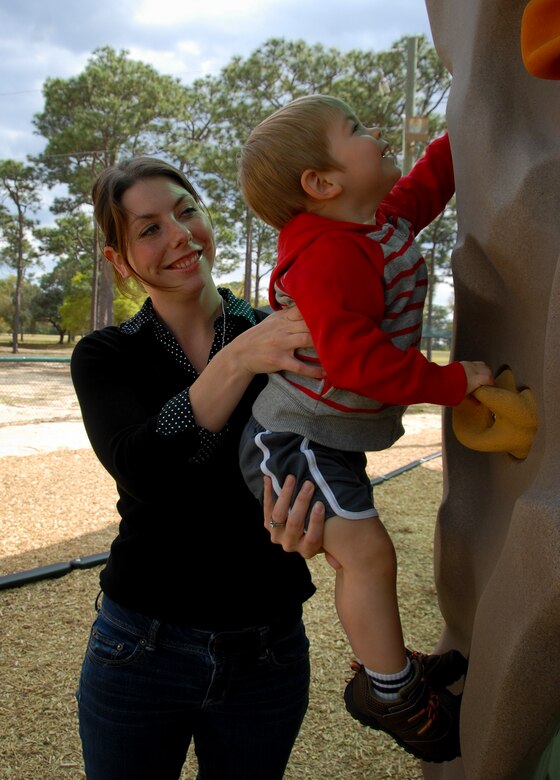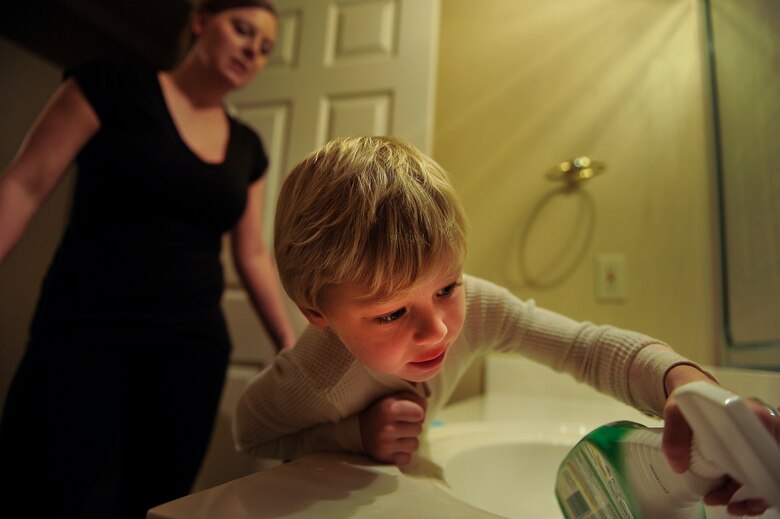Many of us have an ailing marriage because we haven’t put in the effort to make it better. We take our husbands for granted, we let his irritating habits loom larger than our love, our lives pass each other like ships passing in the night, with hardly a friendly toot in the passing. Have we gotten out of the habit of nurturing our marriages? Those little eyes and ears are picking up everything. Do you like what you and your husband are teaching?
“Children
are like emotional Geiger counters,” says E. Mark Cummings, psychologist at
Notre Dame University. Kids pay close
attention to their parents’ emotions for information about how safe they are in
the family. How much more secure a child
will feel when his parents love and treasure each other, encourage and pray for
each other, than in a home filled with yelling, demeaning words, complaints and
antipathy.
Remember
when your spouse was your top priority?
You rearranged your schedules to be together, you had little surprises,
you went out of your way to perform thoughtful gestures on his behalf. I called my husband my Big Brown Bear and we
traced “I love you” in each other’s hands with our fingers. We loved to dance together, study together,
take walks together, hold each other, and just be together. It was like an extended commercial for
Hallmark cards with everything in soft focus.
We knew love and trust could surmount any challenge.
Then we had
kids. My children are as lovely and
magical as yours, but their incessant demands made focusing on my husband feel
like a luxury. “It’s the reality of many
parents, especially moms, that the care of children leaves no energy, time, or
even desire to invest in their marriage,” says Sheryl Kayne, who runs parenting
workshops in Connecticut. With dual
careers and commitments, an endless list of extracurricular activities, and an
infinite number of distractions (include Pinterest, Facebook, Dancing with the
Stars), couple time often gets shelved.
So
what? The Center for Law and Social
Policy found: “…studies support the notion that, on average, children do best
when raised by their two married biological parents… Research indicates that, on average, children
who grow up in families with both their biological parents in a low-conflict
marriage are better off in a number of ways than children who grow up in
single-, step or cohabiting-parent households.”
Sociologist
Paul Amato explains, “Specifically, compared with children who grow up in
stable, two-parent families, children born outside marriage reach adulthood
with less education, earn less income, have lower occupational status, are more
likely to be idle (not employed and not in school), are more likely to have a
non-marital birth (among daughters), have more troubled marriages, experience
higher rates of divorce, and report more symptoms of depression… Research clearly demonstrates that children
growing up with two continuously married parents are less likely than other
children to experience a wide range of cognitive, emotional, and social problems,
not only during childhood, but also in adulthood.”
I know many
of you are single mothers for one reason or another. I applaud you while I hurt for you. I know that sometimes divorce is a necessary
answer to marital problems. I have some
suggestions for you at the end of this article.
However, the
research is clear: If we are concerned about elevating the well-being and life
opportunities for children, we must be concerned about the health and strength
of our marriage.
Pope Francis
taught: “Dear parents, your children need to discover by watching you that it
is beautiful to love another.” Children
watch their parents carefully, he said.
“They watch a lot and when they see that dad and mum love each other,
the children grow in that climate of love, happiness and security.” Children, he said, need to see their parents
kiss each other, compliment each other, and resolve arguments peacefully.
Remaining a
couple over the long term takes effort on both sides. It requires commitment and compromise,
communication and cooperation, especially as life tends to throw curveballs
when we least expect them. So what can
we, as wives and mothers, do to cultivate a healthy marriage?
A. The most
important starting point is for Mom and Dad to love and respect each
other. Why? Because so much of the identity of our
children is wrapped up in Mom and Dad.
So much of their security is knowing that Mom and Dad really love each
other.
I heard
about a lady who started keeping a list on her phone of all the things that her
husband did that irritated her. She
planned to confront him with this huge list in order to make him want to
change. However, one day she realized
that listing his faults was just chasing her love away. It took a long time for her to click on “select
all.” It took another long time before
she could make herself hit “delete”.
But as soon as the list was gone, she felt a new love for her husband. What she could have done next was start a list of all the things she appreciated about her husband.
But as soon as the list was gone, she felt a new love for her husband. What she could have done next was start a list of all the things she appreciated about her husband.
It goes
without saying that your kids need and deserve your love. But, your husband needs to come first. This is tough for some mothers to hear, but
just about every relationship expert agrees.
Of course, there are times when a child’s immediate needs might come
first momentarily, but ultimately the marriage bond has to be paramount. When it’s the other way around, bad things
happen. When kids are the center of your
universe, they grow up thinking they are
the center of the universe. They are
likely to grow arrogant and self-centered.
This can cause real problems when they’re older and enter the “real”
world.
Kids are so sensitive and observant, they pick up everything.
Kids are so sensitive and observant, they pick up everything.
And they model what we do. If a boy sees his father treating his mother poorly, he is likely to believe that’s an acceptable way to treat women. And if a girl sees her mother disrespecting her father, she’s more likely to disrespect all men. Compare this to kids who see their parents expressing true love toward one another and what they will grow up believing.
Knowing that
their parents are a united pair provides security. As long as things are good with Mom and Dad,
kids feel like they can face anything.
B. We need
to realize that men are different than women.
We think differently, we have different priorities, we act differently,
the same words mean different things to each of us. And that’s a good thing. But we will be in trouble if we expect our
husbands to be the same as our girlfriends.
It works a whole lot better if we see their strengths and abilities in
their differentness instead of bemoaning that they aren’t like us. Men like to be appreciated and admired. They are usually not good with expressing feelings.

C. We need to find out what makes them feel loved and then do it. When my husband and I first married, I tried to show my love by fixing him elaborate meals. One day I spent all afternoon making a peeled grape and pomegranate salad, because I loved him. Did that make him feel loved? He thoroughly enjoyed the meals I made, but it did not convey to him the love I felt. What he wanted was to be touched. He showed his love to me by giving me back rubs and foot rubs.

Did that make me feel loved? They felt great and I appreciated them, but that wasn’t what made me feel loved. For me, it was acts of caring…when he helped me with the dishes, or offered to put the children to bed. Once we discovered what made each other feel loved, we were better able to express our love in a way that felt like love. Your husband’s love language may be words of love, or gifts, or something off the wall. Learn what makes him feel loved.
D. Good old
date night. We need to spend time
together. “It requires effort to remain
friends, lovers, and connected partners,” insists Kayne. “The relationship you build with your partner
creates the foundation for your family, so you want it to be a strong one. You may think that your children will resent
this time away from them, but when kids grow up knowing their parents love and
make time for each other, it provides a sense of security that nothing else
can.”
My son and
his wife have six children. They work to
have time together. Their weekly date
night might just be a walk together, or a trip to the library or
McDonalds. Their children each have
learned to make at least one dish and they get to plan and cook dinner for date
night. They feel a part in strengthening
their parent’s marriage. My son and his
wife also have an annual “mini-moon.”
They have sit down dinners together.
When the children are in bed, they play games together.
Sometimes my
children would set up a fancy table complete with menu for my husband and I for
special occasions and act as waiters and waitresses for us.
You can even
be outrageous with each other. Once I
arranged a surprise over-night trip to Catalina. We couldn’t afford a hotel, so we
camped. I made a picnic lunch to eat on
the boat over. We still remember that
weekend. Another time, I took belly
dancing classes and made a costume so I could perform (in private) for him. I probably shouldn't have told you that, but it was fun.
E. Be affectionate with each other. Hold his hand, hug, kiss, laugh and be silly,
baby him when he’s sick, say “I love you”.
This non-sexual affection is a nice reminder that Mom and Dad really
love each other. But keep it PG. Save the sexy stuff for when you two are
alone.
“When a
child grows up in a home that is loving in many ways—through physical touch,
kind words and deeds, thoughtful acts of service for one another—they will
naturally be drawn to a life partner who holds these qualities,” says Day. “It will become the child’s barometer for
what a spouse should be because it is what he knows.”
F. Argue in a healthy manner. Not healthy is name calling, insults, threats
of abandonment, threats of violence, hitting, pushing, avoidance, walking out,
sulking, withdrawing, anger and hateful feelings. Everyone can see those are destructive to a
relationship.
I was
blessed to have a marriage where my husband never raised his voice to me, never
demeaned me. We never fought. He was
nice. I was nice. Maybe too nice. We didn’t want to hurt each other’s feelings
so we didn’t talk about what was bothering us.
And nothing got better.
“Showing our
children how to handle conflict effectively is one of the greatest gifts we can
give them,” insists Dr. Lieberman. “I
have worked with numerous patients who grew up in homes where their parents
never openly communicated differences.
These kids ‘learned’ that you must always agree with your loved
ones. So when they have disagreements
later on in their own lives, they assume the relationship is ruined or that
there’s something wrong with them.”
Mastering
the art of empathic listening works to smooth ruffled feathers and also shows
respect. Mild conflict that involves
support and compromise and positive emotions reassures kids that parents can
work things through. When you do this
right, you reinforce the concept of unconditional love by showing that you can
argue and still be OK.


If you are a
single mother, is your child doomed? Of
course not. There are countless
successful happy people who were raised by a determined and dedicated single
mother. It is harder, but you can do
it. There is one thing that you can do
that will help.
Pope Francis
said that even if couples are unable to live together, they must find a way to
work together harmoniously. “Please, do
not use your children as hostages!” he said.
“Never, ever speak ill of the other to your children! Never!
They are the first victims of this battle between you.” This means that even if you’re divorced,
don’t make the mistake of tearing down your child by tearing down your ex. Build up your child by portraying your ex in
the best possible light, even when it is difficult.
You should
also honor those other men in your child’s life: teachers, coaches,
grandfathers, uncles, neighbors, friends.
This
September, my husband and I will have been married for fifty-five years. Our love is so much deeper, so much richer,
more precious now than when we naively fell in love years ago. There were times when we didn’t “feel” love,
but love is more than a feeling. It is a
verb. It is doing loving things. The knowledge and remembrance of our love
took us past those times to where we could feel it again and rejoice in being
together.













